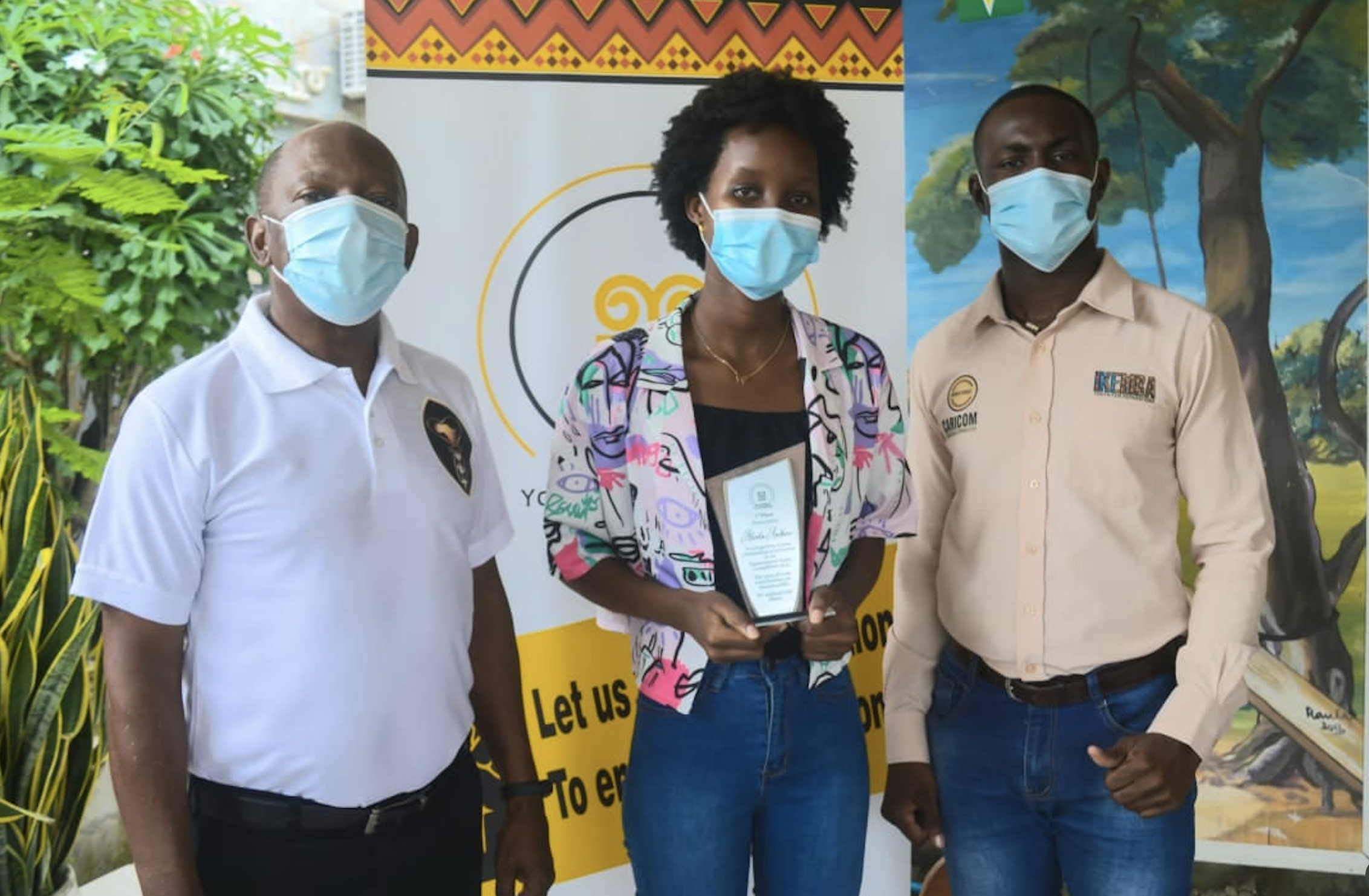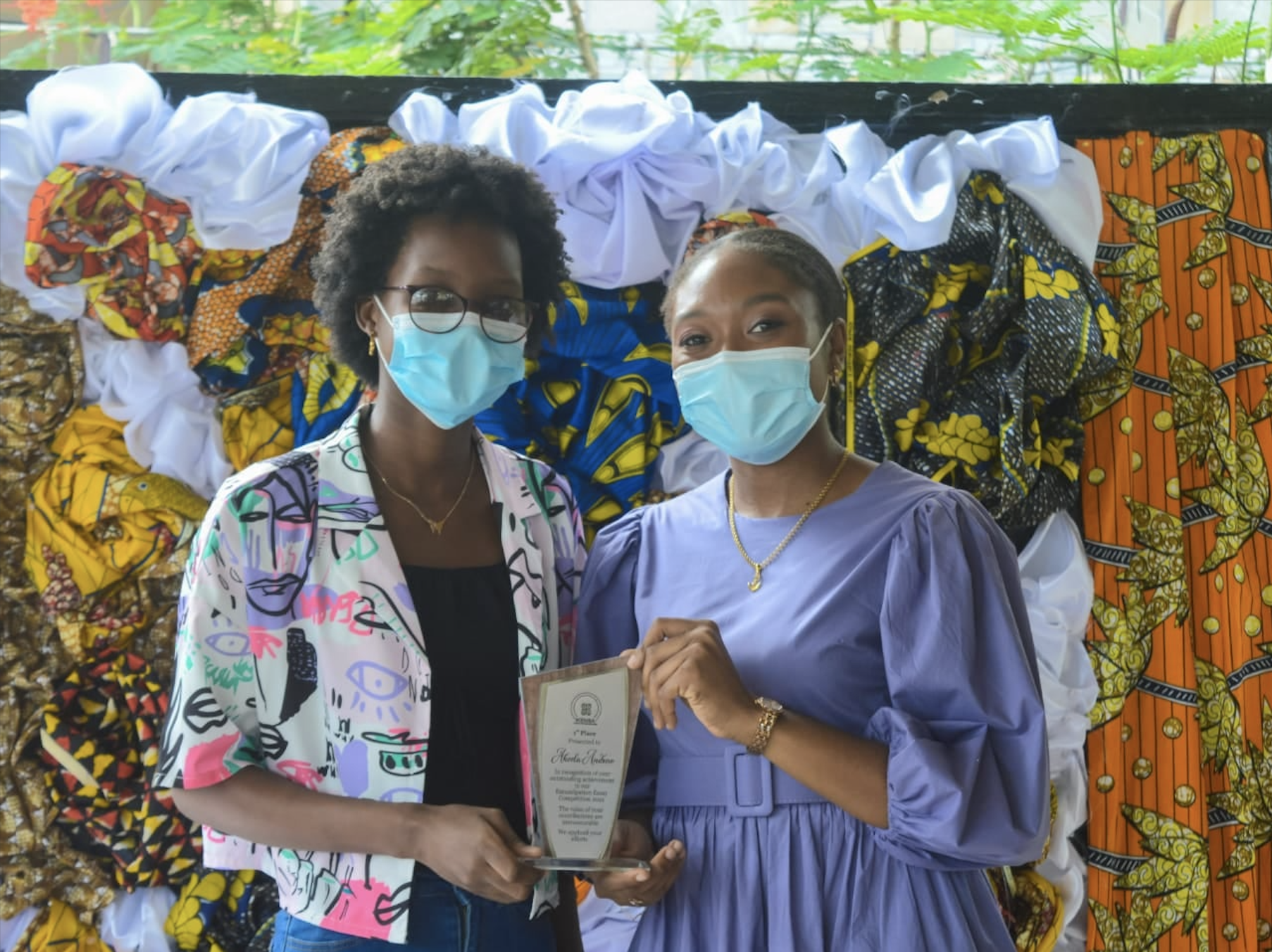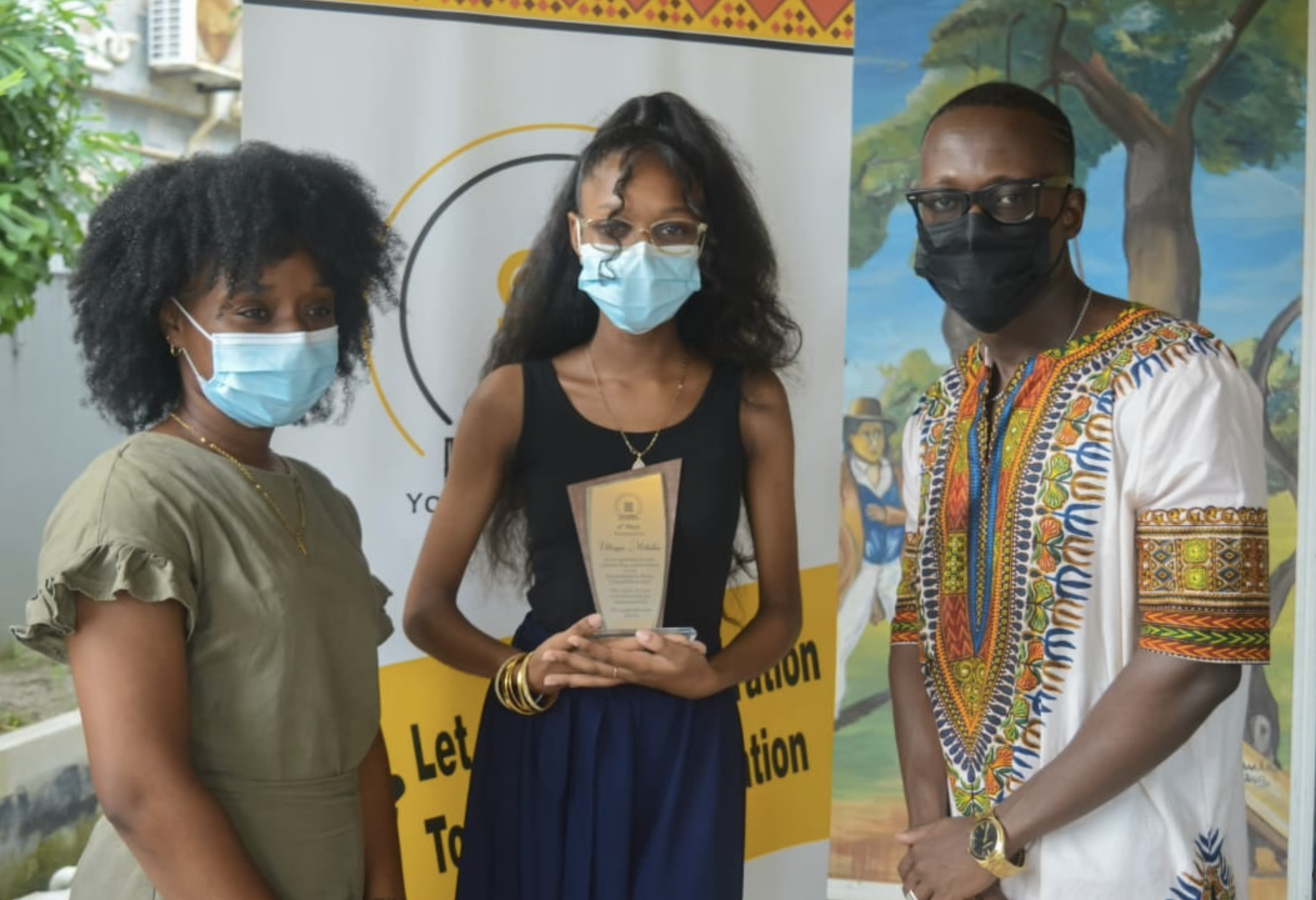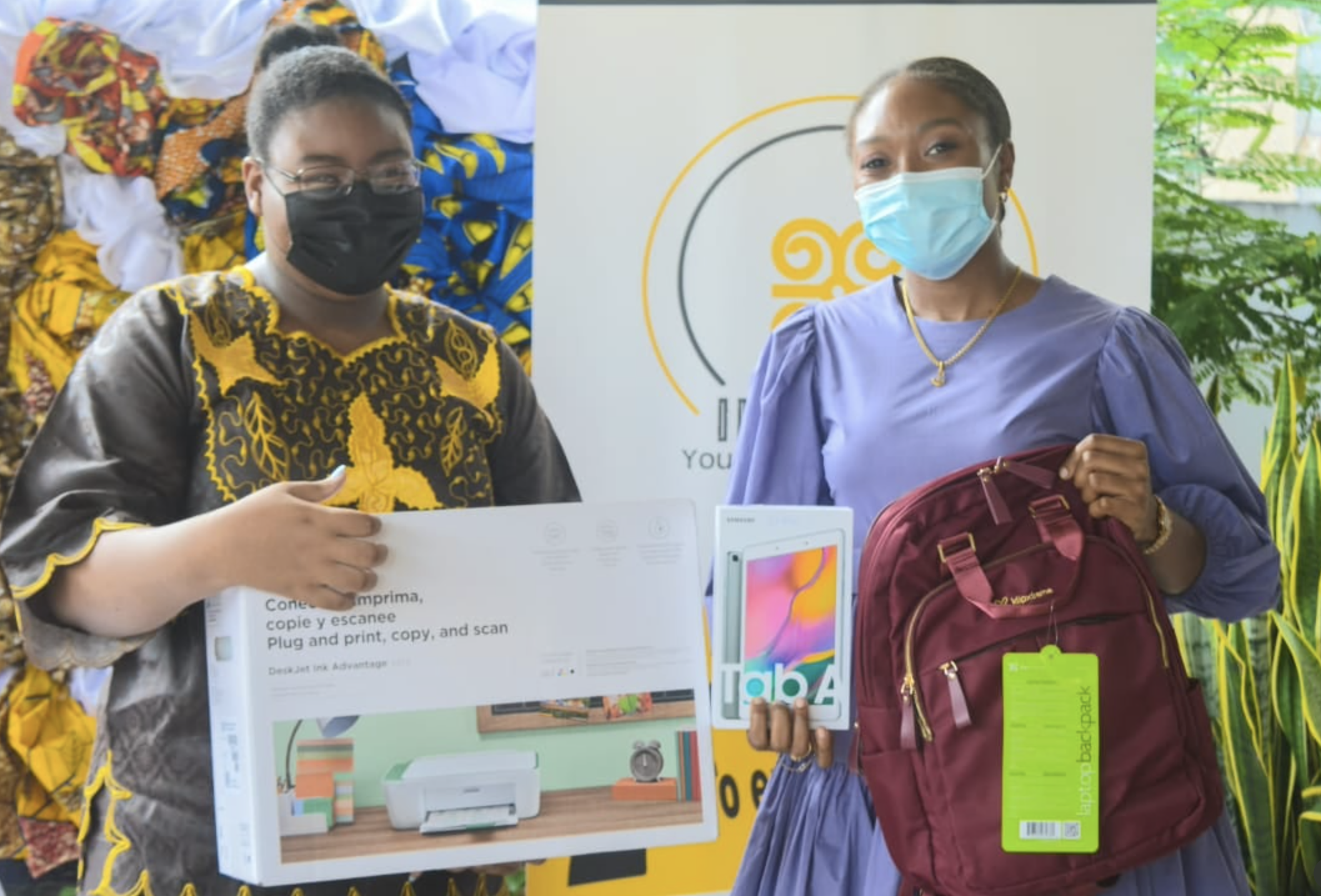Ikemba: Youth for Reparations Essay Competition
“Should people of African descent advocate for reparatory justice and why?”

Ikemba, formed in 2017, is the first youth organisation in the Caribbean to champion the cause of reparatory justice. Ikemba is a Nigerian name which holds strong roots with the Igbo people and translates to: Strength of The People or Strength of a Nation or Person.
The organisation functions as the youth arm of the Guyana Reparations Committee under the mentorship of Chairman Mr. Eric Phillips and Dr. Hilary Brown, Programme Manager for Culture and Community Development at the CARICOM Secretariat.
Their focus is on the education and empowerment of fellow youth and on the importance of adding their voice for the advancement of the CARICOM Ten-Point Plan for Reparatory Justice. Ikemba’s work centres around youth advocacy, sensitization, and awareness building and the organisation provides a successful model of youth engagement around the topic of reparations. They hope to inspire other organisations across the Caribbean to someday have a unified reparations youth voice across the Caribbean.
In August 2021, Ikemba organised and conducted an “Emancipation Essay Competition” to promote awareness about reparations for people of African descent among Guyanese school students between 14 and 18 years of age.
The competition invited Guyanese students to reflect, research, and write impactful pieces around the topic: “Should people of African descent advocate for reparatory justice and why?” The competition received over 30 essay submissions and sparked ongoing interest among some students who continue to engage with, and write about, similar themes today.
Read the top three essay winners here.


First Place – Akeela Andrew
Fourteen years of age.
Should People of African Descent Advocate for Reparatory Justice and Why? Colonialism is defined by dictionary.com as the policy or practice of acquiring full or partial political control over another country, occupying it with settlers, and exploiting it economically. Over the past few centuries, African countries have been constantly invaded and colonized by European and British territories. The effects of colonialism have been especially grotesque. Many may argue that Africa benefited from colonialism more than it has lost. However, I am of the opinion that colonialism has done irreparable damage to many African countries and others throughout the world. Reparatory justice can be defined in a multitude of ways. Reparations, however, can be defined as the action of making amends for a wrong one has done, by providing payment or other assistance to those who have been wronged. Considering this definition, it is without question that reparations are due to those of African descent for the turmoil their ancestors endured. Advocating for reparatory justice is not exclusively the responsibility of African descendants, it is also the responsibility of anyone who acknowledges that reparatory justice is necessary. In this essay, some effects of colonialism and slavery on Africa and African people will be discussed to further elucidate why advocacy for reparatory justice is needed.
The economic impact of colonialism has left Caribbean and African countries in constant need of support from past colonizers. Western capitalism was built off more than three centuries of slavery. Those years of forced, unpaid labour is the foundation of the Euro-American elite economic and social system. Advocating for reparations is not merely demanding that all black people are entitled to free money. Rather, it is compensation for the overlooked toil of African ancestors. Understanding that those who applied the necessary effort, to build wealth are rightfully entitled to the fruits of their labour is not a complicated or unfamiliar concept. Reparatory justice is necessary to redistribute wealth that was gained through gruesome and unjust means.
Following the abolition of slavery, many slave owners received reparations for their freed slaves. Compensated emancipation was a legal act whereby the federal government compensated the
“owners” of enslaved people for the loss of their “property.” This bill was presented to congress in 1861 and passed only a few months later, slave owners were entitled to compensation without so much as a debate. However, those whose ancestors suffered through slavery are being told to fight and earn reparations. Another example of Compensated emancipation is the Haitian Revolution. After the revolution, France demanded that the freedom of slaves in Haiti must be bought. Although Haiti was the richest and most productive European colony, it is now one of the poorest countries in the world. France has received more than 21 billion US dollars as reparations from Haiti to compensate for its independence. Satisfying the payment due to France was such an economic strain that Haiti had been in debt to France for 122 years. I am convinced that slave owners and former colonizers did not deserve to be reimbursed and at the very least the funds they received should be returned to past colonies.
Generations of emotional and psychological trauma that have been endured and passed down because of slavery is still affecting racial equity in societies throughout the world. People of African descent are still experiencing many forms of systemic oppression. Police brutality, fetishization, gendered racism, lack of representation in media, racial disparity and, mass incarceration are only a few examples. These oppressive methods are unethically creating adversities that black people endure as part of their everyday life. Reparatory justice must include mending the systems which have been tailored specifically to hinder the success of African descendants. After centuries of ill-treatment and oppression, advocating and supporting the concept of reparatory justice should be regarded as the bare minimum of human decency.
African culture and history have been the blueprint for modern technology and pop culture for centuries. Artifacts and archives were stolen from ancient African civilizations, reconditioned, and marketed as fresh, original ideas and inventions. Africa is projected in the media as an underdeveloped, poverty-ridden continent which could not be further from the truth. The rich history of ancient African civilizations has been buried and ignored to encourage the ideas and concepts that promote Euro-American elite culture. The knowledge and creativity were stolen and used with no regard to the true source. People of African descent deserve to know how brilliant and powerful their ancestors were. African history did not begin with slavery and should not be taught as such. Reparatory justice includes giving credit to the African civilizations who were robbed of their innovative ideas to advance technology.
To conclude, there is a myriad of reasons why reparatory justice is necessary. In this essay, a few of those reasons have been mentioned and discussed. African and Caribbean countries were exploited by European countries and are still experiencing great economic consequences because of this. Slave owners received reparations rapidly after the abolition of slavery, there is absolutely no reason slave owners should have received compensation after all the harm they had caused. Systemic oppression is an ongoing challenge for people of African descent throughout the world. This is the result of centuries of slavery and segregation. To promote the narrative of Euro-American elite culture, Africa has been depicted as a poor, uncivilized, and untidy continent. The blueprint of modern culture and technology is stolen artifacts and appropriated culture from Africa. Although their ideas and innovations were stolen and used without any regard toward the true source, people of African descent are not being fully exposed to the true brilliance and ambition of their ancestors. These are a few reasons why reparatory justice is indeed necessary. However, advocating for reparatory justice is not solely the responsibility of African Descendants. Everyone who acknowledges that reparatory justice is necessary should advocate for such a cause. Reparatory justice is not merely the demand for free money, it is the redistribution of wealth, knowledge and, acclamation that has been unethically designated to Europeans and other former colonizers.


Second Place – Victoryne Mohabir
Sixteen years of age.
Reparation. According to the Mariam Webster Dictionary, reparation can be referred to as “the act of making amends, offering expiation, or giving satisfaction for a wrong or injury.”1Reparatory justice speaks of reviewing past injustices and making conscious efforts to restore what has been damaged. In essence, reparatory justice entails the steps we take from legal and social standpoints in order to eradicate the damage from a past event or set of circumstances. The Africans in Guyana definitely need reparatory justice. Many citizens are unaware of the true terrors our African ancestors endured, and as a society, this is unacceptable. Yes, the descendants of the Africans should step up and play significant roles in reparatory justice; however, we cannot repair the agony if we are unsure about our heritage.
Oppression has plagued Afro-Guyanese from their arrival to the present day. The first enslaved people arrived in Guyana under Dutch rule in the 1600s. However, slavery really became horrendous when Britain colonised Guyana and was thrown into a relentless system called the slave trade. Britain officially eradicated slavery in 1834, and in its place came apprenticeship. Historians often debate that apprenticeship was not slavery, and while I am no accredited Historian, I must disagree with them. Apprenticeship offered no release from the chains with which the British slave owners bound the Africans. So, after years of being beaten, killed, stripped from family and tormented both physically and mentally, of course, our people would need reparatory justice. As the definition states, reparation refers to fixing a wrong. The Afro-Guyanese society has a plethora of wrongs to be fixed.
Why advocate for reparatory justice? We, as Afro-Guyanese people, should support reparatory justice advocacy because we deserve it. No human should have been and should be treated the way Africans were (are). Our fundamental right to human respect and decency has been blundered from us time and time again. As a people, we should stand up four our rights – veneration and, in turn, a correction of the injustices meted to our fellow Afro-Guyanese brothers and sisters. It is time for our community to stand against oppression once and for all. At some point, a generation of Afro-Guyanese needs to arise and say we will be the last to feel the backlash of racism and injustice. Reparatory justice is what we deserve, and therefore we should not hesitate to advocate for it.
We should also advocate for reparatory justice because future generations need to realise that the picture painted by society is not always accurate. Racism is like a whip in the hands of the racist person, and for too long, Afro-Guyanese have been mercilessly flogged with that whip – generation after generation. All the history books embedded in our curriculum tell a tale of ancestors who were captured, ancestors who had to claw their way to freedom. We celebrate physical emancipation, but forget the mental slavery that still plagues us today. Future generations of Afro-Guyanese need become aware that their rights are worth fighting for. These generations must read the history books, and think to themselves: “My ancestors kept fighting for my rights. After all of it, they saw injustice, and they fought to right the wrongs. I can also advocate for reparatory justice.” Just imagine being a part of that! It seems surreal, but in actuality, it is not. It starts with Afro-Guyanese advocating for reparatory justice.
Before their arrival to Guyana, the Africans were a part of a flourishing society along the coast of West Africa. The Africans, as portrayed today, were undoubtedly not poor people struggling in the slums of their country. West Africa was home to proliferating kingdoms and societies. Ferris State University contends that, “art, learning and technology flourished, and Africans were especially skilled with medicine, mathematics, and astronomy. In addition to domestic goods, they made fine luxury items in bronze, ivory, gold, and terracotta for both local use and trade.”2 It would be erroneous to omit the fact that our cultural and religious heritage were left in West Africa and Afro-Guyanese usurped (and still do) other identities. While slavery existed among the Africans in West Africa, it could not be compared to the terror of British enslavement. The Africans stolen for slavery were not often strangers to wealth and entitlement. We as a people should advocate for reparations as it can be a vital step in regaining the title we once held in society. We can lead the Afro-Guyanese in Guyana back to prosperity. After years of degradation, we deserve to once more feel like part of tiny kingdoms in our country. By no means should we return to the traditional ways of life our ancestors practised, but we should definitely strive to hold ourselves to the same standards of the kings and queens of our past.
Reparations are necessary if we want to progress. An adage states “silence implies consent”. Applying this logic, by not advocating for reparatory justice, we are portraying two detrimental positions. The first is that the injustices of the past are no longer affecting us, and the second implies that people can continue to undermine us as a society. Our silence permits racist personalities to treat us as they wish. If we continue to stay silent and not advocate for reparations, we are no better than those against us. We are no better than our abusers if we do not begin to publicly and fervently rebuke injustice. Unless we stand up for ourselves as an Afro-Guyanese community, we will continue to be oppressed. What better persons to advocate for reparatory justice than those who are victims of the crime? If not us, then whom?
In summation, Afro-Guyanese should wholeheartedly advocate for reparatory justice. We are living in times where, more than ever, racism is being brought into the light and exposed for what it is – evil. It is time for our people to arise. It was the great Martin Luther King Jr. who said, “The time is always right to do what is right.” Advocacy for reparatory justice is what is right. It is time for our people to heal from the past and present scars and paint a new image of ourselves. The idea of strength and freedom our ancestors aimed to paint aeons ago must live out in today’s generation of Afro Guyanese. Advocating for reparatory justice can achieve this.


Third Place – Shania Winter
Sixteen years of age.
Reparations. The contentious term is constantly flung around, but what does it actually mean? As attested by The International Center for Transitional Justice, reparations are meant to ‘acknowledge victims and their traumas, repair specific arms they have suffered, and affirm victims as rights bearers’. Ideally, reparations should challenge the factors that enabled violations
to occur in the first place. The vocabulary of “reparatory justice” illustrates its multiple dimensions, encapsulating numerous diverse forms: reparations, damages, remedies, redress, restitution, compensation, and lastly, rehabilitation. This term, according to Cheryl Suzack of the University of Toronto, establishes a form of redress within transitional justice movements that obligates an entity to balance a competing set of interests in remedying injustices that victims suffer due to wrongdoings meted out to them. But, what do reparations look like in reality? In the Americas, reparations are a form of reparatory justice for historical wrongdoings committed especially during the initiation of the transatlantic slave trade system. The Director of the Centre for Reparation Research at the University of the West Indies (UWI) Mona campus, connects the term to “restorative justice” for actions committed of a criminal nature. She further argues that “identifying steps to repair harm is to unequivocally acknowledge that wrong was done and to make amends.” The link between reparatory justice and African descendants is a notion that is becoming increasingly popular in contemporary times, especially with the erroneous brutalities Africans are faced with today, even though it is the year 2021 and we all should be seen as an equal population.
Calls for reparations directly relate the turbulent history of African enslavement to the current social, political and economic ills that afflict regions like the Americas, particularly, South and North Americas. Despite myths of a post-racial society as a result of many positive social transformations, we are today again forced to examine our inheritance of a great sin—slavery and its subsequent infamous legacies of Jim Crow segregation, systemic racism, and dispossession of Africans. Black people had been kidnapped and brought to various countries to labor for free as slaves; stripped of their languages, religions, and cultures; raped and tortured; subjected to police brutality, inferior education, substandard housing, and mediocre health care. The lenses of cellular phones, nightly reports by the media, the Black Lives Matter movement, protests against extrajudicial powers of the police, and the merciless murder of black people are exposing the fragile underbelly of this society, and what we see is the stark reality of structural racism and visceral inequality. This is just the surface of an otherwise disheartening global issue and it is only with the continuous advocation of reparatory justice by people of African descent that the world can truly become a less grotesque place to coexist. In simpler words, African descendants should always strive to campaign for justice for their disenfranchised predecessors while simultaneously enforcing change for future generations to follow. These movements would be geared to guide many countries along the reconciliatory process to heal past wounds that still inflict pain in the region today. African descendants have first-hand knowledge of the pain, turmoil and trauma their ancestors faced, whether by official records, old newspaper editorials or even a simple story told to them by a grandparent and can sympathize with their courageous efforts in the past.
Because of this, there are many examples of outstanding individuals who, in their young days, fought tirelessly and dedicated their energies to eradicating the effects slavery had on themselves, their families, and subsequently, society as a whole. The first formal record of a petition for reparations in the United States was pursued and won by a formerly enslaved young woman, Belinda Royall. Professor Ray Winbush’s book, “Belinda’s Petition,” describes a petition she presented to the Massachusetts General Assembly in 1783, requesting a pension from the proceeds of her enslaver’s estate — an estate partly the product of her own uncompensated labor. Belinda’s petition yielded a pension of 15 pounds and 12 shillings. Journalist Ron Daniels, proposed government financing of a national fund to develop educational and economic opportunities for the entire African-American community. Daniels argued in an editorial that “America must own up to its responsibility to make a damaged people whole again.” Another outstanding example is seen in the fruitful work of Robert Brock, a Los Angeles campaigner for reparations, who argued for direct payments to descendants of slaves. “The government owes us money on a number of different fronts,” the 66-year-old activist declared, “. . . for labor, for loss of culture and of humanity.” Similarly, advocacy groups like the National African American Reparations Commission (NAARC), Coalition to Abolish Slavery & Trafficking (CAST), Black Lives Matter Movement, and the Caribbean Community and Common Market (CARICOM) all speak of crimes committed, damages caused, and the structures and compensation needed for black people to self-repair and advance collectively. Others, such as the National Coalition of Blacks for Reparations in America (N’COBRA), advocate a broader approach. They believe that the government could satisfy the call for reparations by a variety of means, including land, ownership of companies, stock, money, and aircraft. The group also calls for a method of self-government for American blacks to give them autonomy. These were all groups established by young black individuals who felt that the idea of reparations was one whose time had come. These stellar examples only prove that with a positive initiative and a passion for change, black youngsters have the power to transform the world today.
We can all agree that rich and diverse historical legacies of struggles for freedom, justice, equality, and development have propelled young African descendants over the centuries to act in solidarity across national identities. The historical recognition, cultural affinity, and political development projects of young people of African descent in the Americas achieved a major victory toward democratic inclusion by planning, coordinating, and organizing their attendance and participation at the 2001 United Nations World Conference against Racism, Intolerance and Other Forms of Discrimination in Durban, South Africa. Diverse in their nationalities and their cultural expressions, but still united in a common struggle for human rights, they recognized their shared interest in counteracting the structural racism and discrimination that began with the trans-Atlantic slave trade and that produced a host of other identity designations.
The call today for reparatory justice by young Afro descendants is an imperative for expanded democracy and spiritual and material wellbeing. It is a test-case of human decency that conforms to accepted standards of morality. It is also a marker of the adjudication of our past wrongs and current barriers against fellow citizens who continue to be shut out, marginalized, and discriminated against. The case of reparatory justice must be formulated and implemented in collaboration with young Afro Descendants as they proactively envision and construct their futures as full citizens with both self-interests and common interests with other citizens, not as immobilized, pitiful victims.
Reparations, when they become a true reality, would be a tangible way for countries to take responsibility for themselves and their past and apologize for the brutal abomination of enslaving and consigning black people to a life of excruciating pain, all for the profit that forms the majority of the world’s wealth today. It is time for truth-telling and acceptance of our moral, legal, political, and socio-cultural responsibilities—in essence, another opportunity to acknowledge and make right the deep wrong of chattel slavery and its destructive aftermath for black people and our entire society. This is an unpopular subject, and Professor Kofi Anyidoho of the University of Ghana noted it best when he remarked that “slavery is like a wound in the belly over which scar tissue has grown. Such a wound is likely to destroy you if it is not opened up and cleaned of its infection.” This subject lies hidden under the cover of historical amnesia and is usually brushed over in history books or published using various euphemisms to conceal the intensity of the treatment our ancestors faced so many years ago.
Calculating the value of a life is complex, but as slavery has taught us, it has been done before. For centuries, Africans were reduced to property in North, South America and the Caribbean. Slave traders had no trouble pricing a human life, and abolition-era economists repaid slave owners for the losses of their freed slaves. It is only when the descendants of those slaves return to ask for compensation for their lost ancestors does counting become difficult. Similarly, the loss of human life from the African continent due to the Trans-Atlantic slave trade had a real cost. Africa was not just deprived of lost manpower and income, but also creativity, innovation, and relationships. Those losses were multiplied by millions of lives, over hundreds of years, stunting the development of a continent whose governments have since struggled to find the will to ask for restitution. There is no need to further justify reparations for Africans and the African diaspora to redress the impacts of slavery and colonialism. It is now the responsibility of young African descendants, such as myself, to continue to advocate for reparatory justice for all the reasons aforementioned. Additionally, what needs to be discussed as well is how those reparations will be paid out and to whom. That will require not only economic dexterity, but empathetic imaginations.
